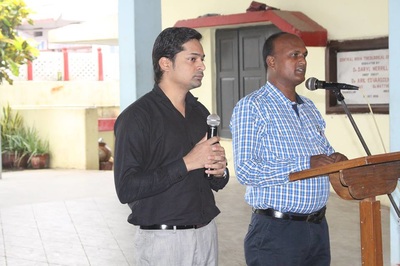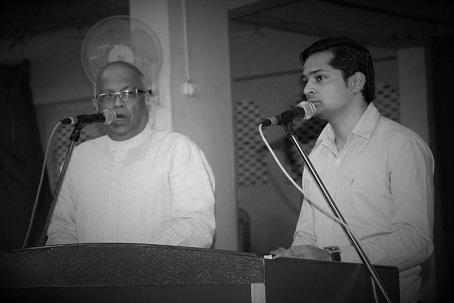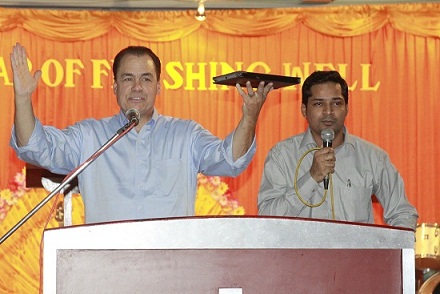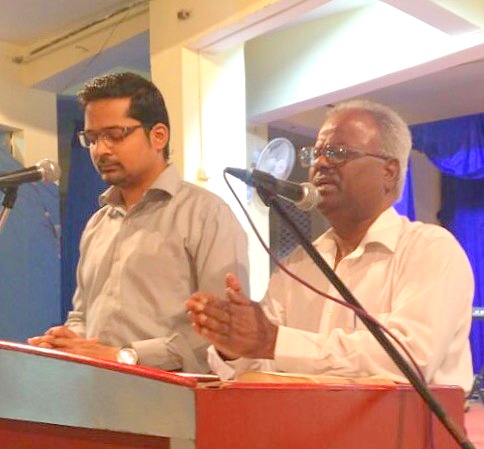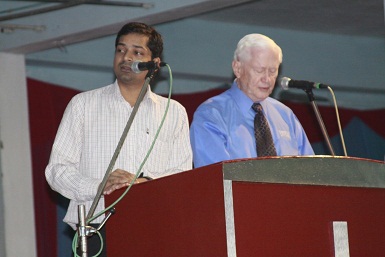 Year: 1991, Pages: 192
Year: 1991, Pages: 192
Thomas V. Morris (born
1952) is a former Professor of Philosophy at the University of Notre Dame; he
is also a business and motivational speaker as founder and chairman of the
Morris Institute for Human Values. He has written a number of other books, such
as Francis Schaeffer's apologetics: A critique, Making Sense of It All: Pascal
and the Meaning of Life, God and the Philosophers: The Reconciliation of Faith
and Reason, C. S. Lewis as Philosopher: Truth, Goodness and Beauty, etc.
An Overview if the
chapters:
In first chapter,
author discusses about the project of philosophical theology. He establishes
that the God-talk is possible philosophically. It’s not groundless as many
assume.
In the second chapter,
Morris talks about the concept of Go. He tells about the problems in the
methods that have been used for developing theologies or to talk about
theology. At this point, he proposed a methodology attributed to Anselm called
`perfect being theology'
In chapter three,
author provides various perspectives about God’s goodness and then moves on to
stress on the necessity of God’s goodness. If God did not exist, then the
property of goodness would not exist.
In chapter four, we
read about the magnanimity of God’s power. How powerful and sovereign God is?
The theological concept of the omnipotence is philosophically analyzed.
In chapter five, author
deals with the epistemological issues in theology, mainly the knowledge of God.
The nature of God’s knowledge. Does God’s knowledge surpasses futuristic
events? Certainty and uncertainty about God’s knowledge. In chapter six books
opens a talk on being of God, his existence and simplicity. In chapter six,
author talks about being of God, Necessity, Divine simplicity. In chapter
seven, author opens a discussion on God’s eternality. In eighth chapter, he
deals with the nature and creaturely dependence of creation. In the final
chapter author talk about the incarnation and trinity.
Morris started Chapter 1
as a shield for the possibility that finite beings like us could have a
rational dialogue about God. Mainly, he sought to establish as logically
self-defeating the skeptics' assertions that no human concepts or language
could apply to the infinite God. How could one `know' that God is utterly
unknowable? However, the mere possibility of thinking and talking rationally
about God does not mean we can find sure ground for sureness. "If God is
infinite Mind and has brought into existence minded creatures in his image,
then it might be expected that those creatures' minds could grasp something of
his existence and nature" (Pg. 25). "It is no exaggeration to add
that it is one of the most important truths about God" (Pg. 138) a truth
concisely worded by Aquinas: “Anything that exists in any way must necessarily
have its origin from God” (Pg. 139).
In Chapter 2, the
author argued the method of how we could go about doing it. At this stage, he
suggested a methodology credited to Anselm called `perfect being theology'
(that which no greater can be conceived). Afterwards, he put this method to the
test in discoursing key theistic ideas like God's goodness, power, knowledge,
being, eternity and creation. In the final chapter, he sought to vindicate the
particularly Christian doctrines of Trinity and Incarnation as logically
conceivable without evading any of the mentioned divine attributes.
Theology, according to
the etymology of the word, is simply rational discourse about God. (Pg. 17). “However,
as I have indicated, the thesis of spatial simplicity is widely endorsed by
theists, and the thesis of temporal simplicity, while nowadays very
controversial, is endorsed by numerous thoughtful theists, and is intimately
related to the ideas of divine eternity and immutability, which require
discussion in their own right”. (Pg. 118).
“Time, it has been
suggested by many theorists, is just a measure of the existence of physical
objects” (Pg. 125). Morris' delivery of many basic philosophical matters in
theology is as clear as it can get. At the same time, its content surpasses way
beyond naïve descriptions that fall so short of our anticipations. I think that
if you have some acquaintance with philosophy like having taken some
preliminary level classes, you will, with a reasonable amount of effort, find
this book immensely satisfying and rewarding.
In summary, the author
has been careful to maintain his method and applied it in a way that reaffirmed
the basic forms of classical theism in a way that is delicate to how these ideas
interrelate with each other. He presented many useful illustrations to make the
abstract ideas more coherent to the target readers. Alternate views were justly
discussed and assessed in a brief manner.
Written from a
Christian perspective, I believe it can significantly fortify one's
understanding of God. Extremely recommendable to people interested in
philosophy and theology. Its asset lies in lucidity and profundity, a good
mixture for a philosophy book. This book is also meant to serve as an
elementary introduction to philosophical theology.
Image Source: http://thumbs.ebaystatic.com/images/g/dDsAAOSwEK9T7cL8/s-l225.jpg


